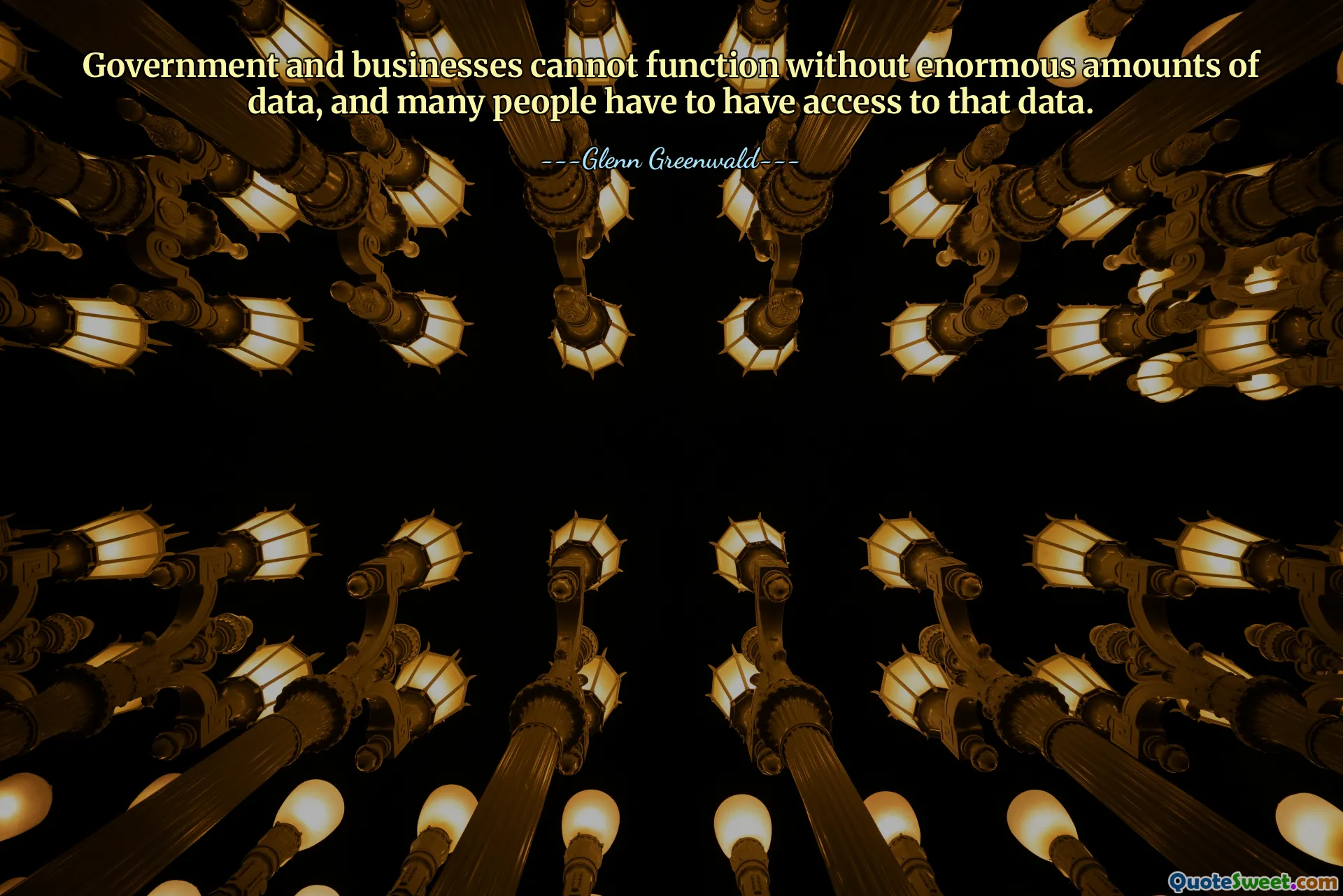
Government and businesses cannot function without enormous amounts of data, and many people have to have access to that data.
In modern society, data has become the lifeblood of both government operations and business activities. The reliance on data is deeply rooted in the need for efficiency, decision-making, and innovation. Governments utilize vast datasets to improve public services, manage resources, and formulate policies. Businesses, on the other hand, analyze consumer data, market trends, and operational metrics to optimize their offerings and stay competitive. However, this dependency raises critical considerations around privacy, security, and ethical use of information. As data collection expands, so does the potential for misuse or abuse, highlighting the importance of robust regulations and transparent practices. The necessity for many individuals to access certain data also underscores significant issues around data democratization. While open access can foster innovation and accountability, it also raises questions about individual privacy and the potential for data to be weaponized or exploited. Striking a balance between leveraging data for societal benefit and protecting individual rights remains one of the greatest challenges of our digital age. We must continually evaluate how data is managed, who has access, and under what circumstances, to ensure that the growth of data usage benefits society without compromising fundamental freedoms.
---Glenn Greenwald---











